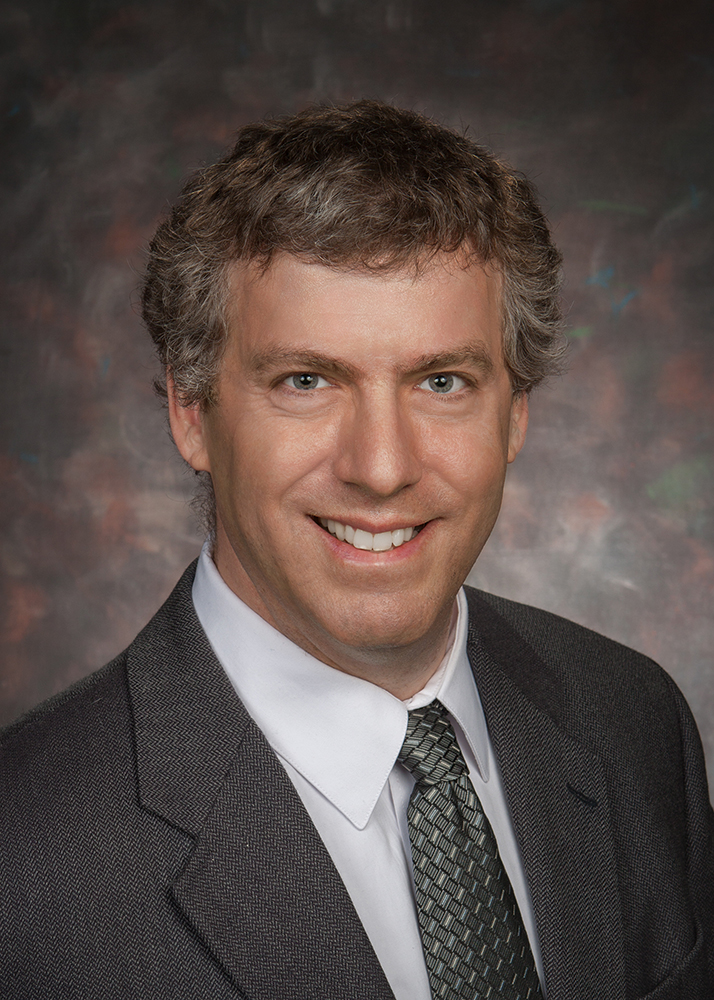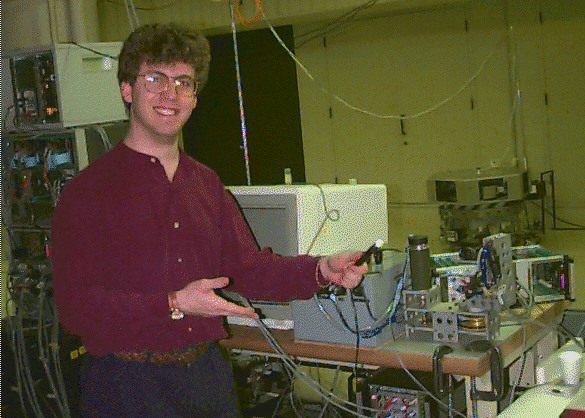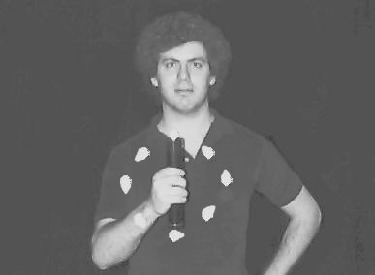Cybernet CTO Charles Cohen works to shape the future of human-computer interaction, robotics, and artificial intelligence

When Charles Cohen began as an Electrical Engineering Systems doctoral student at U-M in 1989, his first task – like the other students in his program – was to find an advisor.
“To me, Lynn [Conway] was the smartest one there, so I made a deal with her,” he said. “I’d be her T.A. if she agreed to be my PhD advisor.”
Conway, Prof. Emerita of EECS, is internationally renowned for her role in transforming the global microelectronics industry with the invention of VLSI, or Very Large-Scale Integration, which allowed small teams of individuals to design powerful chips. She agreed to work with Cohen, and she also brought on robotics specialist Prof. Daniel Koditschek, who is now at the University of Pennsylvania, as co-advisor.
“There wasn’t even a robotics program at that time, but I got to work with Dan on all sorts of projects,” Cohen said. “He had a juggling robot, of all things.”
Cohen specialized in Modern Control Theory, but he spent much of his time working in the AI Lab. Where Conway gave Cohen significant free reign, letting him decide what kind of research he wanted to pursue, Koditschek provided more of a research framework for him to follow.
“That was a good combination of approaches,” Cohen said. “One supported my creativity to explore topics, and the other gave me a strong application area.”

But it was Conway who imparted the most important skill Cohen has used throughout his career – and it had nothing to do with technical expertise.
“She reviewed the first draft of the beginning of my dissertation and was blunt,” Cohen said. “She told me, ‘Your writing is terrible. You need to get a lot better. Fast.’”
Conway gave him a copy of Strunk and White’s The Elements of Style, a widely referenced and celebrated guide on American English writing style. With the help of his girlfriend – now wife, who was a student in the U-M Law School – Cohen used the style guide to rework his dissertation line-by-line.
“Lynn knew that learning how to write well was extremely important,” Cohen said. “And what do I do now? I have to explain complex ideas and why they’re useful. One of my main job tasks is to write funding proposals, and thanks to my graduate school training, I have been awarded dozens of projects because of my writing. Even more than the tech itself, it was the most important skill ever gained, and I never would have improved it if it hadn’t been for her.”
Even more than the tech itself, it was the most important skill ever gained, and I never would have improved it if it hadn’t been for her.
Charles Cohen
After graduation, Cohen joined Cybernet Systems Corporation, which was founded in Ann Arbor in 1988 by Dr. Heidi Jacobus and her husband, Chuck, to advance human performance through advanced technology. Today, Cybernet is a research, development, and production business focused on bleeding edge technologies for the commercial and defense markets.
Cohen has held multiple positions at Cybernet, including VP for Research and Development. He was recently promoted to Chief Technology Officer, where he is responsible for all of Cybernet’s research and development efforts, including human-computer interaction, robotics, and artificial intelligence.
“Even if you’re happy where you are, I believe you should always be looking for your next job,” Cohen said. “Your next job can be at the same company, so consider what you really want to do. Every time I wanted to do something different and have more responsibility, I had the opportunity to do it at Cybernet.”

Cybernet has partnered with both the U.S. Government and private contractors on a wide-variety of high-profile projects. They are currently working with the U.S. Army to develop a prototype for an unmanned Assault Breacher Vehicle, which is used to breach minefields and complex obstacles during an assault operation. Cybernet’s autonomy kits focus on remote control, tele-operation, smart driver assist, and autonomous vehicle operation to help improve the safety of soldiers in the field.
However, one of their biggest programs only happened because they got rejected.
Cybernet had worked with the Department of Defense to develop Automated Material Handling Technology, which they integrate with forklifts, trucks, and tugs for autonomous handling and delivery of supplies to workers. They’d been looking to bring the technology to the commercial market for a while, and Cohen was invited to present at a major Department of Defense conference, where a variety of relevant companies were present. His pitches were flatly rejected.
But one of the representatives knew a different company that was already seeking out this exact type of technology – Toyota. Specifically, Toyota Tsusho America, Inc., which is the operating subsidiary that oversees all operations of the Toyota Motor Corporation in Canada, Mexico, and the United States. Within a few weeks, Toyota Tsusho Vice Presidents were touring Cybernet sites and reviewing autonomy demonstrations, and a partnership was born.
“It is amazing that I made that connection,” Cohen said. “It didn’t seem like it at the time, but we were in the right place and saying the right things, and because we were prepared and followed up, we had success.”
It didn’t seem like it at the time, but we were in the right place and saying the right things, and because we were prepared and followed up, we had success.
Charles Cohen
The technology in question uses flexible robotic material handling systems that locate, retrieve, and deliver supplies in warehouses, and also outdoors between warehouses. It could help revolutionize the material handling industry, as well as construction and any work that requires a forklift or tugger. One specific application is for the airport industry, regarding baggage transportation, which has long been an issue of safety for airport operation.
“The reality is that there’s not enough truckers and forklift operators out there, even when they get paid more, so we’re not replacing jobs,” Cohen said. “The idea is that with our technology, one operator can now manage a small fleet of tugs. They get paid more and get a much better work-life balance, and at the same time, overhead is reduced, because the system is safer, so they don’t have to spend as much on insurance or responding to accidents.”
Cohen hopes to leverage his skills as a leader as Cybernet continues to grow in the future. His approach is a mix from his PhD advisors, allowing his team the freedom to be creative and have agency, while providing guidance and organization while needed. And he regularly recommends, and has himself gifted, The Elements of Style to others.
 MENU
MENU 
